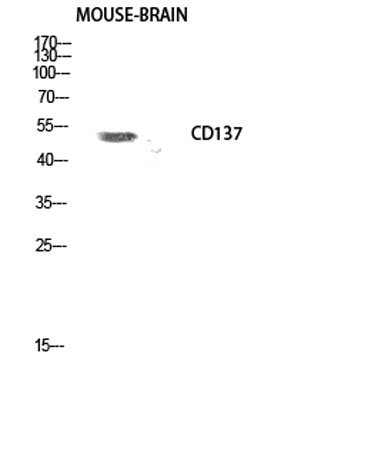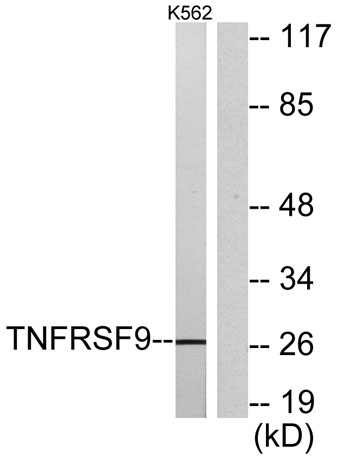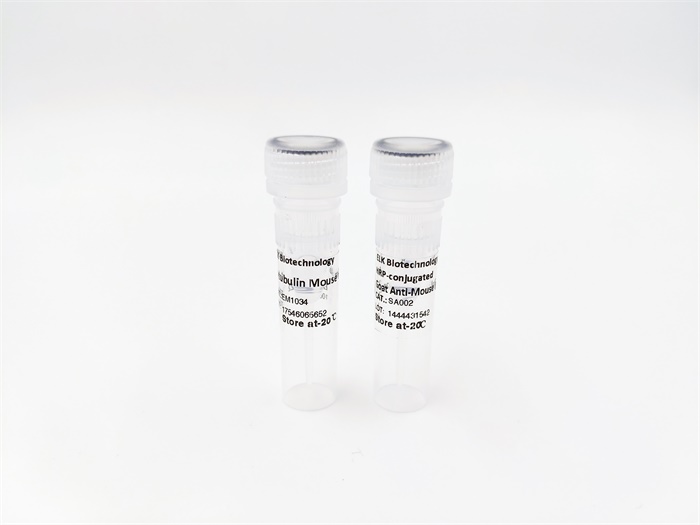







CD137 rabbit pAb
 One-click to copy product information
One-click to copy product information$148.00/50µL $248.00/100µL
| 50 µL | $148.00 |
| 100 µL | $248.00 |
Overview
| Product name: | CD137 rabbit pAb |
| Reactivity: | Human;Rat;Mouse; |
| Alternative Names: | TNFRSF9; CD137; ILA; Tumor necrosis factor receptor superfamily member 9; 4-1BB ligand receptor; CDw137; T-cell antigen 4-1BB homolog; T-cell antigen ILA; CD antigen CD137 |
| Source: | Rabbit |
| Dilutions: | Western Blot: 1/500 - 1/2000. Immunofluorescence: 1/200 - 1/1000. ELISA: 1/10000. Not yet tested in other applications. |
| Immunogen: | The antiserum was produced against synthesized peptide derived from human TNFRSF9. AA range:101-150 |
| Storage: | -20°C/1 year |
| Clonality: | Polyclonal |
| Isotype: | IgG |
| Concentration: | 1 mg/ml |
| Observed Band: | 27kD |
| GeneID: | 3604 |
| Human Swiss-Prot No: | Q07011 |
| Cellular localization: | Membrane; Single-pass type I membrane protein. |
| Background: | The protein encoded by this gene is a member of the TNF-receptor superfamily. This receptor contributes to the clonal expansion, survival, and development of T cells. It can also induce proliferation in peripheral monocytes, enhance T cell apoptosis induced by TCR/CD3 triggered activation, and regulate CD28 co-stimulation to promote Th1 cell responses. The expression of this receptor is induced by lymphocyte activation. TRAF adaptor proteins have been shown to bind to this receptor and transduce the signals leading to activation of NF-kappaB. [provided by RefSeq, Jul 2008], |

 Manual
Manual